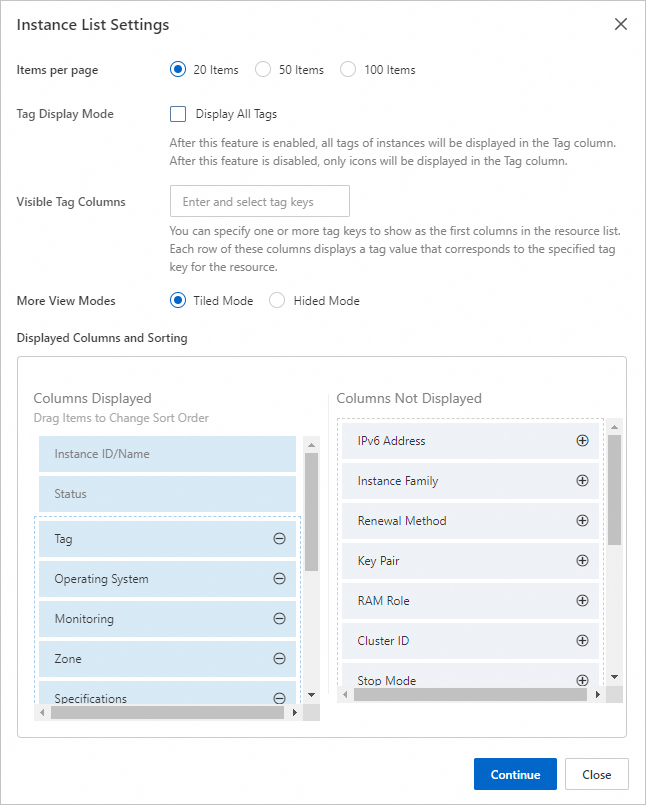You can obtain an overview of resources in your Alibaba Cloud account, such as information about Elastic Compute Service (ECS) instances and snapshots. You can also view the detailed information about a single ECS instance based on your business requirements. The detailed information includes the instance ID, instance name, instance status, operating system, zone, IP address, billing method, and network type.
Obtain an overview of instance resources
The Overview page provides an overview of resources in the selected region and a visual representation of resources by status. You can export the statistical data on this page to your computer.
Log on to the ECS console.
On the Overview page, view the statistics about instance resources.
The following sections are displayed:
Pending events
Lists all pending events and the instances that are associated with the events.
Security Protection
Lists the total number of pending security issues and the top 5 tasks that are not handled.
My Resources
Lists ECS resources, such as ECS instances, in each region.
Dimension
Description
Elastic Compute Service
Lists the total number of ECS instances.
Running
Lists the number of ECS instances that are in the Running state.
Expiring
Lists the number of ECS instances that are about to expire within 15 days.
Expired
Lists the number of subscription ECS instances that expired within the last 30 days. You can renew the instances and make a budget based on the statistical data.
Recently Created
Lists the number of ECS instances that were created within the last 7 days. You can manage your computing requirements based on this information.
Snapshots
Lists the size and number of snapshots in each region.
View the detailed information about a single instance
Go to ECS console - Instance. In the top navigation bar, select the target region and resource group.
In the top navigation bar, select the region and resource group of the resource that you want to manage.

On the Instance page, you can view information about the ECS instances in the selected region.
For example, you can view the ID or name, status, operating system, zone, IP addresses, and billing method of an ECS instance.
Click the ID of an ECS instance and view information about the instance on the Instance Details page.
The following table describes the information that is displayed on the Instance Details page.
Section
Description
Basic Information
This section includes identifying information, configuration details, and associated tags. You can find the instance ID, public IP address, security group, region, zone, and hostname. Configuration details cover CPU and memory specifications, the operating system, instance type and family, disks, snapshots, image ID, current bandwidth, and VPC information. It also lists any tags and application groups associated with the instance.
Network Information
The information about the instance network, such as the network type, elastic network interfaces (ENIs), VPC, vSwitch, and primary private IP address.
Billing Information
The information about instance billing, such as the billing method, auto-renewal setting, and billing method for network usage.
Other Information
The information about instance O&M, such as the maintenance attribute, instance category, cluster ID, and release protection setting.
 icon.
icon. icon to the right of a column name that you want to display and then click Continue.
icon to the right of a column name that you want to display and then click Continue.